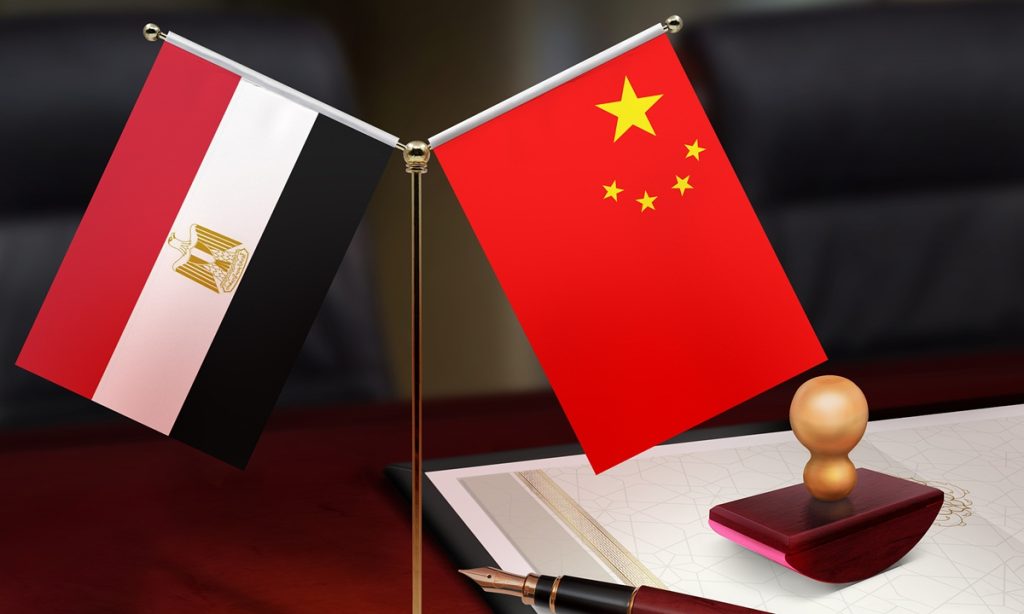Chinese FM kicks off Africa visit in Egypt

Chinese Foreign Minister Wang Yi on Saturday night local time arrived in Egypt, the first leg of his four-nation Africa tour this week. This is the 34th consecutive year when a Chinese foreign minister has visited Africa as their first overseas trip at the beginning of the year.
Coming shortly after Egyptian President Abdel-Fattah al-Sisi's successful reelection in December 2023, and amid the already 100-day Palestinian-Israeli conflict in the Middle East, Wang's visit is of great significance, Chinese analysts said. They predicted that further coordinating their positions concerning hot-spot issues, especially the Palestinian-Israeli conflict in the Gaza Strip, and its spillover in the region such as the Red Sea turmoil, will be high on the agenda during Wang's exchanges with Egyptian officials.
China and Egypt are to explore the potentials of their bilateral and multilateral cooperation in a variety of fields under multilateral frameworks that include the China-proposed Belt and Road Initiative and BRICS, analysts said on Sunday.
On Sunday, President Sisi met with Wang Yi in Cairo. The Egyptian president expressed gratitude for China's strong support for Egypt's social and economic development, noting significant achievements in jointly building the Belt and Road Initiative.
He reaffirmed Egypt's commitment to the one-China principle and opposition to interference in China's internal affairs.
Wang Yi thanked Egypt for supporting China's rightful stance. China appreciates Egypt's active response to the Belt and Road Initiative and will remain to be a long-term, reliable strategic partner in Egypt's development and revitalization. China aims to strengthen the alignment of development strategies and practical cooperation for greater achievements, working together toward modernization, Wang said.
Both sides agreed to continue strengthening communication and collaboration within frameworks such as BRICS and the United Nations. Wang Yi stated that Egypt, as an Arab, African, Islamic, and developing major country, is congratulated on becoming a new member of BRICS.
They also exchanged views on the Palestinian-Israeli situation, agreeing on the need for an immediate cease-fire and preventing further conflict escalation. A joint statement regarding the situation was issued.
During the visit, Wang Yi and Egyptian Foreign Minister Shoukry also discussed and signed the second five-year plan for the China-Egypt comprehensive strategic partnership.
Wang Yi, in a joint press conference with Shoukry after their talks, expressed deep concern over the recent rapid escalation of the situation in the Red Sea, and called for an end to attacks on civilian ships.
At the same time, China believes that the UN Security Council has never authorized any country to use force against Yemen, and actions should be avoided that would add fuel to the tension in the Red Sea and increase the overall security risks in the region. It must be emphasized that the tension in the Red Sea is a prominent manifestation of the spillover of the Gaza conflict, Wang said.
The urgent task is to quickly quell the war in Gaza to prevent the conflict from further expanding or even getting out of control. All parties need to jointly maintain the safety of the Red Sea waterway in accordance with the law, while genuinely respecting the sovereignty and territorial integrity of the Red Sea coastal countries, including Yemen, he noted.
Egypt is the first African nation Wang would visit during his current Africa trip, which is of significance, coming so soon after President Abdel-Fattah al-Sisi's successful reelection. The Egyptian government has launched development plans and targets, including attracting investment and boosting tourism, to tackle the country's economic challenges, He Wenping, a director with the Institute of West Asian and African Studies under the Chinese Academy of Social Sciences, told the Global Times on Sunday.
Regarding bilateral and multilateral cooperation, Zhu Yongbiao, executive director of the Research Center for the Belt and Road at Lanzhou University, told the Global Times that the conversation will be carried out within the framework of the China-proposed Belt and Road Initiative, as well as under the BRICS framework.
BRICS inducted five new member countries - Saudi Arabia, the United Arab Emirates, Egypt, Iran and Ethiopia - into the bloc in early January 2024. The integration of new member states marked a major expansion for the bloc originally founded by Russia, Brazil, China, and India in 2006, and later joined by South Africa in 2011.
Wang's visit seeks to implement the outcomes of the China-Africa Leaders' Dialogue held in August, 2023 in Johannesburg, South Africa, according to Zhu.
China announced at the 2023 Leaders' Dialogue it would launch the Initiative on Supporting Africa's Industrialization, the Plan for China Supporting Africa's Agricultural Modernization and the Plan for China-Africa Cooperation on Talent Development, as part of the efforts to chart the course for China-Africa practical cooperation in the next stage and help Africa bring its integration and modernization into a fast track, according to the Xinhua News Agency.
China and Africa will host the ninth ministerial conference of the Forum on China-Africa Cooperation (FOCAC) in China in 2024, which will likely take place in Beijing towards the end of the year.
FOCAC is hailed by the international community as an epitome of an efficient and effective platform for South-South cooperation and is a springboard for Africa and China to firmly support each other in strengthening development interests and collaboration in international affairs, as well as at multilateral occasions.
China-Egypt cooperation covers various fields, including infrastructure like development of the new Egyptian capital, railway projects and space collaboration with the launch of Egypt's second satellite. There is also cooperation in oil development, with new oil fields discovered in Egypt, as well as in aviation and technology, He Wenping said.
Wang's visit will further align the China-proposed Belt and Road Initiative with Egypt's 2030 development vision. Egypt's new government has many plans in motion, including tourism cooperation and dealing with their foreign exchange shortage, which might involve trade and import of non-Egyptian agricultural products. All these areas are expected to feature in the bilateral discussions and potential cooperation agreements, He explained.